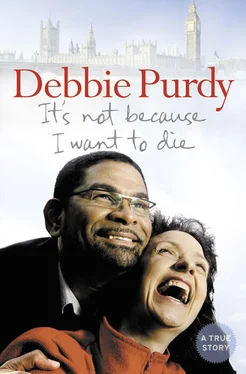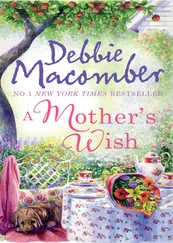Writing about music gave me the chance to meet and interview lots of fascinating people, and gave me free access to Singapore’s buzzing music scene, but the late nights were becoming harder to cope with (even before my MS diagnosis).
My next job – one I’m still doing today, albeit a bit differently – was managing Omar. It’s not something I actively chose in the beginning, but I was living with a houseful of musicians. Their talent lay in making music and mine lay in organisation, so we all just did what we could. They also each did what they could to make my life easier (except getting places on time).
It was incredible luck that I met Omar and the Cuban Boys when I did. The timing was impeccable. They needed managing and they met me, and I became friends with a bunch of people who were able to make me laugh at things that would otherwise have made me cry. It was through them that I worked out how to deal with the disease. Because of them, I was able to take my neurologist’s advice and get on with everything I wanted to do for as long as I could.
Chapter 5 The Boys from Cuba
The house where the Cuban Boys were living in Singapore had five bedrooms to accommodate the ten of them. Omar had been sharing a room with Mariano, the bass player. After I moved in, Mariano would stay elsewhere whenever he could to give Omar and me some space. No one seemed to mind my arrival. It was a very easy place to live. We took it in turns to shop and clean up and cook, although there was only really breakfast to worry about because the band could eat dinner at a restaurant owned by Fabrice (as per their contract) and there really wasn’t time between getting up and dinner to think about lunch.
Omar started trying to teach me Spanish so we could communicate better, but he wasn’t the world’s most sympathetic language teacher. If I said something that was grammatically incorrect, or mispronounced a word, he would call the rest of the band into the room and get me to repeat it and they would all fall about laughing. After the fourth or fifth time he did this, I announced, ‘Right! That’s it. I give up. You’ll have to learn English instead.’ And I stuck to my guns. We were living in a country where English was the universal language, so it was more useful for him to learn English than for me to learn Spanish.
In a way, I didn’t want to learn Spanish, because I had a feeling I didn’t want to hear everything that was being said. Omar flirts with anybody and everybody, and being a nice Englishwoman, it makes me a little uncomfortable. He tells women how beautiful they are. He genuinely means it; he has never been that impressed with half-clothed nubile lovelies, but finds women intriguing. If a woman is wearing a new dress or has changed her hairstyle, he will comment on it. It doesn’t mean he plans to try it on with her; he just notices and comments. I decided it was easier if I didn’t know everything he was saying. Because we were together twenty-four hours a day, privacy was precious and language could provide that.
On stage the band members were charming, sexy, flirty musicians, but if I saw one of them standing straight like a lollipop stick and just playing his instrument without any of the normal messing around I knew it was probably because his girlfriend was in that night. And I didn’t want to be the person who turned Omar into a lollipop stick.
Of course, he didn’t like anyone to flirt with me. Omar once finished his part, put down his violin, left the stage, ‘encouraged’ a man who was drunkenly chasing me round our table to leave, then got back on stage and picked up his violin without missing a beat.
A month after I moved back to Singapore post-diagnosis, it was my 32nd birthday. I hadn’t realised that in Cuba they celebrate birthdays as the clock strikes midnight, so when Omar asked me to come to the club because they were trying something different that he wanted me to hear, I didn’t think anything of it, even when he was insistent: ‘Make sure you are there for the first set. We’re going to do this new thing really early on.’ (Of course, our conversations weren’t nearly as fluent as this; they were still monosyllabic, spoken in whatever language we could remember a word and accompanied by plenty of sign language. It took us twenty minutes to have a three-sentence conversation, which is actually quite good at the beginning of a relationship because it means you can’t argue.)
I obediently turned up at the club and was surprised when, in the middle of the first set, the whole band launched into a very Cuban version of ‘Happy Birthday’. As the number ended, Omar climbed off stage and came over to hand me a red rose. It was a fabric rose because, he explained, he’d been running late and hadn’t had time to go for a real one. The thought was so romantic. I still have the rose: I’m an old romantic too.
He continued to introduce me at gigs, after going through the band members, by saying, ‘There’s the woman who has my heart in chains.’ Some of the other guys decided this clearly worked – if it turned the most ferocious tiger into a purring pussycat, it was worth a try – but it never worked as well as it did for Omar. Originality probably says sincerity.
Our schedules were completely different in those days. Omar got back from the club at three or four in the morning, by which time I would usually be sound asleep in bed. He’d wake me up to share the night with me. It was nice, I suppose, that he wanted to include me in everything he did, but it took hours to go back to sleep. I had to get up at nine to be at work for ten, and if I accidentally woke Omar while I was getting dressed he would complain, without any sense of irony, ‘Why aren’t you respecting my sleep?’
Gradually, with the help of a well-thumbed dictionary, Omar’s improving English and Rolando’s occasional translations, I began to learn his life history and find out more about the man I was living with.
Omar Puente was born in Santiago de Cuba in 1962, three years after the revolution that brought Fidel Castro to power. His father was a doctor, and the family had been living in New York but decided to return in 1959 because Cuba was in desperate need of doctors. After the revolution thousands of predominantly wealthy, white and Hispanic professionals left the island, fearful of what might change. Omar’s parents joined thousands of Cuban expatriates going the other way. Many Afro-Cubans and native Cubans had found it difficult to practise professions under the previous Batista dictatorship. Now they went home to family and friends. In 1962 his mum and dad already had a 10-year-old son, Victor, so it must have been a shock when baby Omar put in an appearance.
Little Omar loved music from the word go and he was sent to the Esteban Salas music school in Santiago, and then, at the age of 12, he won a scholarship to the prestigious Escuela Nacional de Arte in Havana. There he was taught classical violin by the top Russian and Cuban teachers (hence he speaks some Russian) and spent his evenings hanging around Havana’s famous music halls and developing a taste for Latin music. It was the heyday of Havana. Musicians like Chucho Valdés, Rubén González and Guillermo Rubalcaba were playing nightly. Omar was in his element.
In 1978 he saw the jazz fusion band Weather Report playing at Havana’s Karl Marx Stadium and he left the gig on a high, thinking, I want to be able to make people feel that way one day. He loved Latin music, he loved classical, and he was developing a taste for jazz.
The family were living in an apartment near Havana’s famous Malecón, where the Gulf of Mexico crashes up on to the rocks, only separated from a main road through the city by a sea wall. After the revolution, everyone got food, housing, education and healthcare, all the essentials, but the American blockade meant that if you wanted to buy international goods, like records by American artists, you needed foreign currency. Omar started playing his violin in restaurants, where tourists left foreign-currency tips, and that’s where he perfected his ‘charm’. The more customers liked him, the bigger the tips, so flattery and flirtation were useful talents.
Читать дальше












